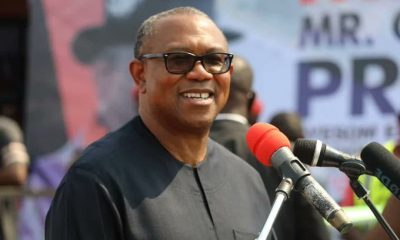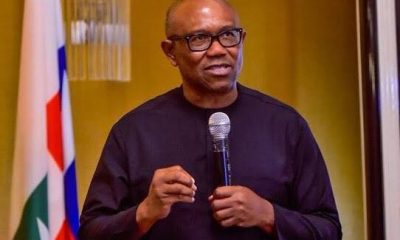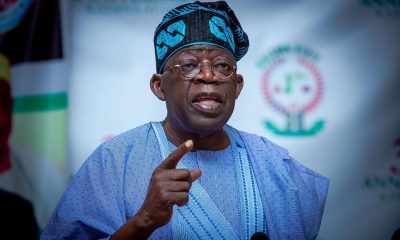Business
Minister, NNPC disagree on FAAC as Nigeria borrows to service debt

Nigeria’s Minister of Finance, Budget and National Planning, Mrs. Zainab Ahmed and the Chief Executive Officer of Nigeria National Petroleum Company Limited, Mele Kyari, may be working at variance on the issue of the Federation Accounts Allocation Committee (FAAC).
This is especially with regard to the eight months unremitted funds to the FAAC by the now defunct Nigeria National Petroleum Corporation.
Before now, the NNPC made monthly payment to the Federation Account based on monetary receipts from crude oil sales and other services it rendered on behalf of the country.
The Petroleum Industry Act, 2021 provides for the transition of the NNPC from a wholly-owned public corporation to a limited liability company with shareholders, effectively commercialising its operations and freeing it from bureaucratic bottlenecks.
With NNPC now a private enterprise, Kyari said the company has nothing to do with FAAC anymore and only has its shareholders, which the Federal Government is a part, to cater for.
Speaking to journalists on the side line of the unveiling of the new oil company in Abuja, on Tuesday, July 19, 2022, Kyari, while responding to a question on what would happen to NNPC’s monthly FAAC contributions, retorted rather sarcastically: “We are now a private company; would MTN go to FAAC?”
Pressured to tell if there would be no more FAAC remittances from the company going forward, he said: “We will pay our taxes, royalties and deliver dividends to our shareholders.”
READ: Buhari nominates AMCON debtor, 2 journalists as ambassadors
But when he was queried about the arrears to FAAC that were not delivered by the erstwhile NNPC to the Federation Account, the CEO snapped: “Which arrears? That’s Nigerian National Petroleum Corporation.”
However, the finance minister said the Federal Government would work out an arrangement to get NNPC Limited to defray the outstanding eight-month obligation and continue to pay into the Federation Account.
“We will be engaging the NNPC on how we expect this to come. We can negotiate how these remittances will be done on a quarterly basis for example. But let me also say that prior to the NNPC transiting, for about eight months, we have not been receiving any revenues,” Mrs Ahmed said.
She added: “The new arrangement has indicated that NNPC will not be contributing monthly to the Federation Account as they used to in the past. But NNPC will be paying royalties, dividends and taxes. So, while the revenue might not be monthly, we will work on an arrangement on how this will be paid. And it is possible to work out an arrangement where the payments could be monthly or quarterly.”
The minister further explained that the NNPC Limited will continue to take care of petrol subsidy payment on behalf of the Federal Government until the first half of 2023, notwithstanding its private venture status and the fact that it would no longer be making monthly payment to FAAC.
READ: Senate approves $16.23bn loan for Buhari
“NNPC has been paying for subsidy, but they are doing it on behalf of the federation, on the cost of the federation, even though they are the ones that have been paying.
“So, when they generate revenue, instead of remitting the revenue they are using part of the revenue or all of them to fund the subsidy. That has been the arrangement and that is what will continue to be in place until we exit the first-time scenario one,” Ahmed said.
Meanwhile, the minister on Thursday revealed that the country’s debt service cost in the first quarter (Q1) 2022 was N1.94 trillion, N310 billion higher than the actual revenue received during the period.
The implication is that the Federal Government spent more to service debt in the first quarter (Q1) of 2022 than the actual revenue it earned during the same period.
Also, Ahmed projected a total of N6.72 trillion as full-year budget for petrol subsidy payment in 2023, if the country decides to continue with the controversial policy that had been identified as a drain on the economy.
The minister disclosed these when she unveiled the Medium Expenditure and Fiscal Strategy Paper (MTEF-FSP) in Abuja.












